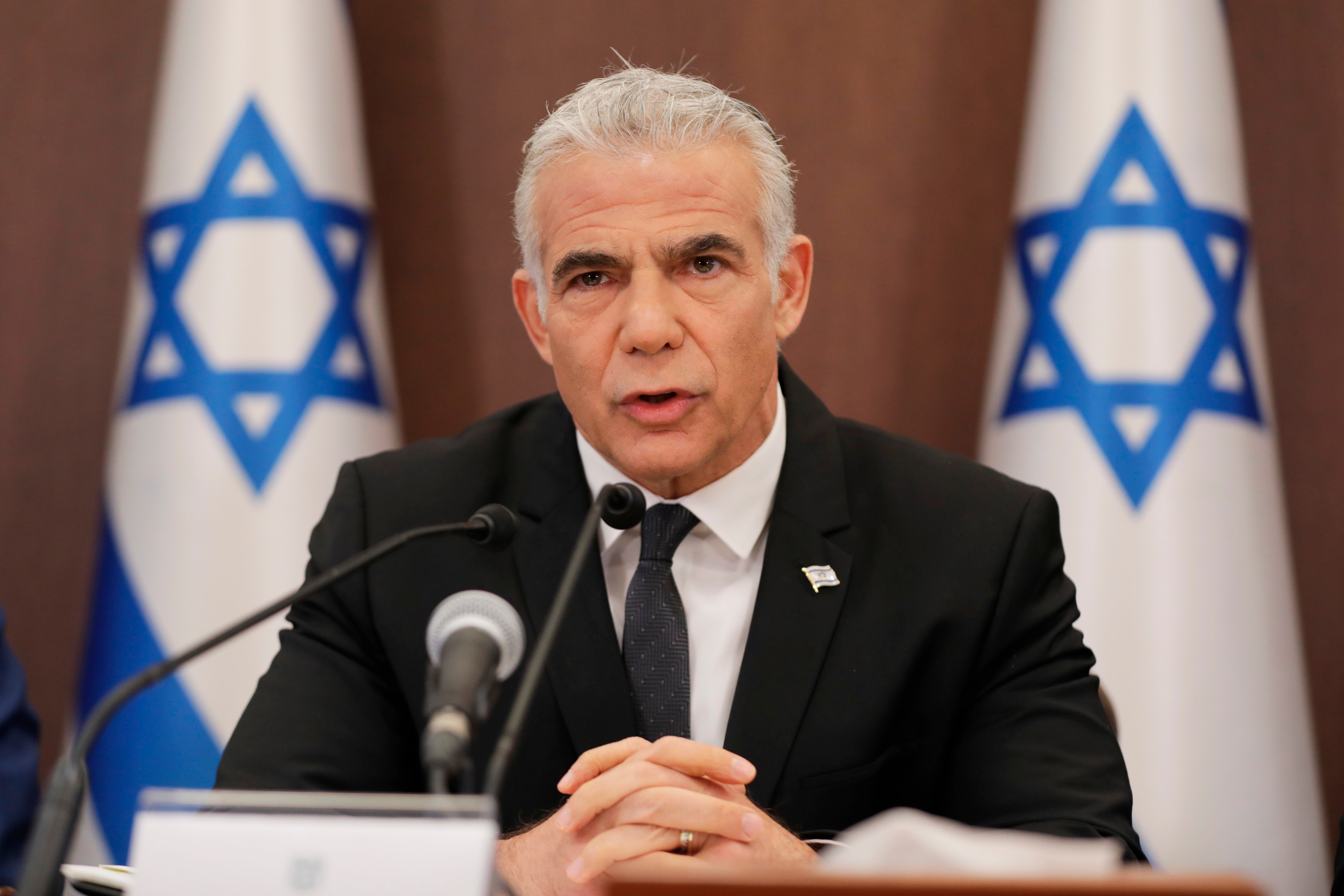Israel aims to stop Russian move against Jewish nonprofit
Israel’s prime minister says he's sending a delegation to Moscow in hopes of halting a Russian order to shutter the operations of a major nonprofit organization that promotes Jewish immigration to Israel

Your support helps us to tell the story
From reproductive rights to climate change to Big Tech, The Independent is on the ground when the story is developing. Whether it's investigating the financials of Elon Musk's pro-Trump PAC or producing our latest documentary, 'The A Word', which shines a light on the American women fighting for reproductive rights, we know how important it is to parse out the facts from the messaging.
At such a critical moment in US history, we need reporters on the ground. Your donation allows us to keep sending journalists to speak to both sides of the story.
The Independent is trusted by Americans across the entire political spectrum. And unlike many other quality news outlets, we choose not to lock Americans out of our reporting and analysis with paywalls. We believe quality journalism should be available to everyone, paid for by those who can afford it.
Your support makes all the difference.Israel’s prime minister on Thursday said he would send a delegation to Moscow in hopes of halting a Russian order to shutter the operations of a major nonprofit organization that promotes Jewish immigration to Israel.
Yair Lapid’s decision came after a spokeswoman for a Moscow District Court was quoted as saying that Russia’s Justice Ministry aims to “shut down” the Russian branch of the Jewish Agency. A court hearing in the case is scheduled for July 28.
The Jewish Agency is a nonprofit that works closely with the Israeli government to bring Jewish immigrants from around the world to Israel. Under the country’s law of return, anyone with at least one Jewish grandparent is automatically eligible for Israeli citizenship.
The Jewish Agency has been active in Russia since 1989, according to the Interfax report. Well over 1 million immigrants have come to Israel from the former Soviet Union, and an estimated 150,000 Jews still live in Russia.
According to the agency, immigration has picked up since Russia’s invasion of Ukraine in February, with 17,000 Russians taking Israeli citizenship and as many as 40,000 others coming to Israel and expected to apply. In comparison, some 7,700 Russian Jews immigrated to Israel last year.
Lapid’s office said the delegation heading to Russia would include representatives from his office, the Foreign Ministry and other government ministries.
“The Jewish community in Russia is deeply connected with Israel. Its importance arises in every diplomatic discussion with the Russian leadership,” Lapid said. “We will continue to act through diplomatic channels so that the Jewish Agency’s important activity will not cease.”
A Jewish Agency official said that Russia has accused the nonprofit of violating its privacy laws by collecting personal information of people who are interested in immigrating to Israel. The official, speaking on condition of anonymity because of the pending court case, said it was not clear why Russia was cracking down on what he described as routine paperwork.
Russia and Israel have a close, if sometimes uneasy, relationship in Syria. Their two air forces maintain close communications to prevent clashes in Syrian skies — despite being on different sides of the civil war there. Russia has provided support to Syrian President Bashar Assad, while Israel often strikes what it says are enemy Iranian and Hezbollah targets aligned with Assad.
Lapid, who became Israel's interim prime minister this month after spending the past year as foreign minister, has been an outspoken critic of Russia's invasion of Ukraine.
Still, Israel has refrained from joining the United States and other Western countries in providing arms to Ukraine, apparently due to the sensitivities in Syria and concerns for the safety of Russia's Jewish community.
Lapid's predecessor, Naftali Bennett, was much more muted in his criticism of Russia and briefly attempted to serve as a mediator in the war.